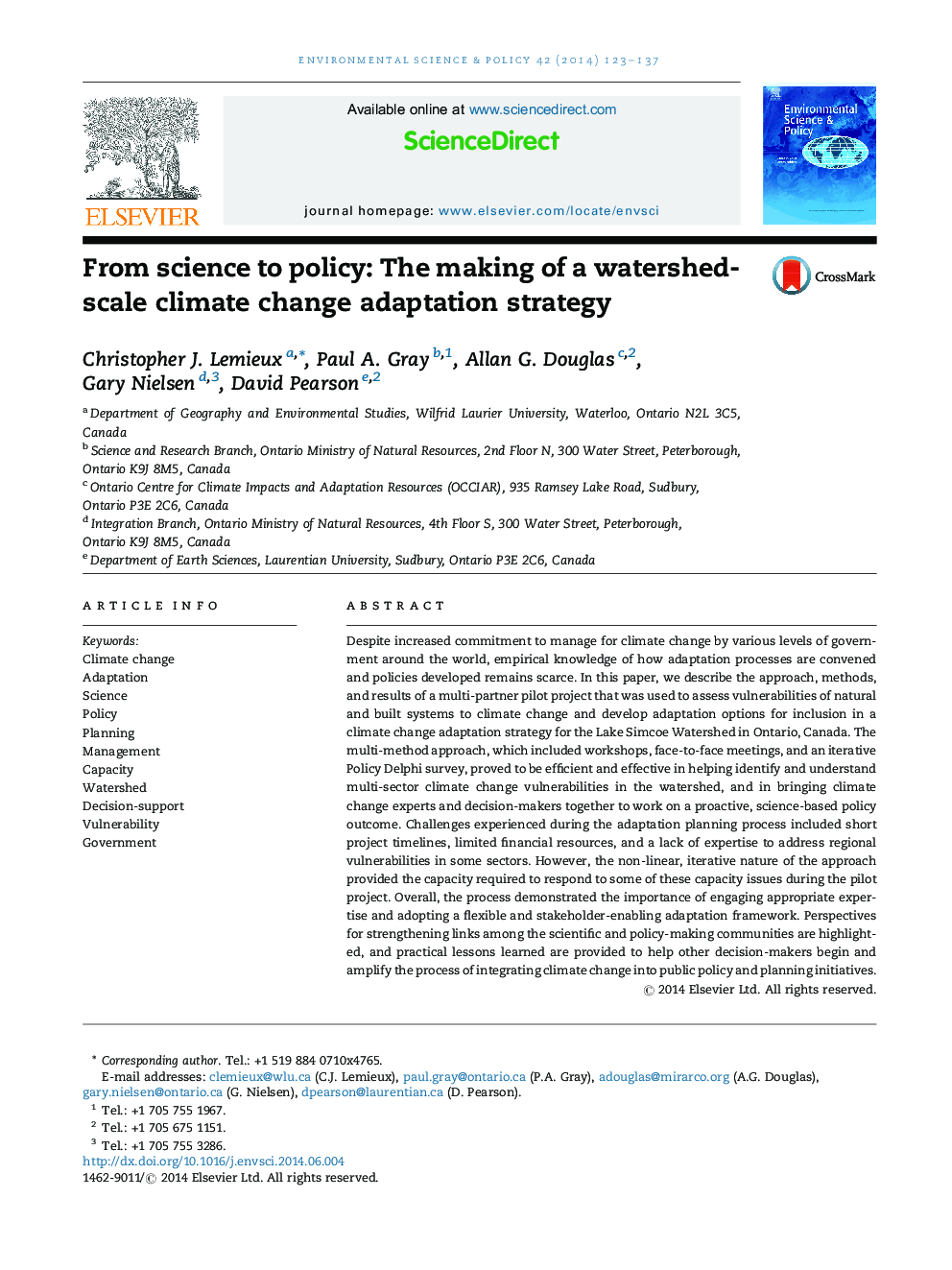| Article ID | Journal | Published Year | Pages | File Type |
|---|---|---|---|---|
| 7467696 | Environmental Science & Policy | 2014 | 15 Pages |
Abstract
Despite increased commitment to manage for climate change by various levels of government around the world, empirical knowledge of how adaptation processes are convened and policies developed remains scarce. In this paper, we describe the approach, methods, and results of a multi-partner pilot project that was used to assess vulnerabilities of natural and built systems to climate change and develop adaptation options for inclusion in a climate change adaptation strategy for the Lake Simcoe Watershed in Ontario, Canada. The multi-method approach, which included workshops, face-to-face meetings, and an iterative Policy Delphi survey, proved to be efficient and effective in helping identify and understand multi-sector climate change vulnerabilities in the watershed, and in bringing climate change experts and decision-makers together to work on a proactive, science-based policy outcome. Challenges experienced during the adaptation planning process included short project timelines, limited financial resources, and a lack of expertise to address regional vulnerabilities in some sectors. However, the non-linear, iterative nature of the approach provided the capacity required to respond to some of these capacity issues during the pilot project. Overall, the process demonstrated the importance of engaging appropriate expertise and adopting a flexible and stakeholder-enabling adaptation framework. Perspectives for strengthening links among the scientific and policy-making communities are highlighted, and practical lessons learned are provided to help other decision-makers begin and amplify the process of integrating climate change into public policy and planning initiatives.
Keywords
Related Topics
Physical Sciences and Engineering
Energy
Renewable Energy, Sustainability and the Environment
Authors
Christopher J. Lemieux, Paul A. Gray, Allan G. Douglas, Gary Nielsen, David Pearson,
